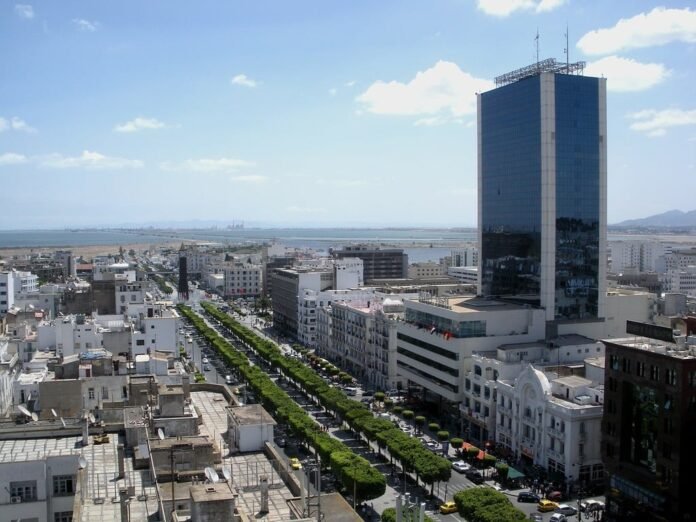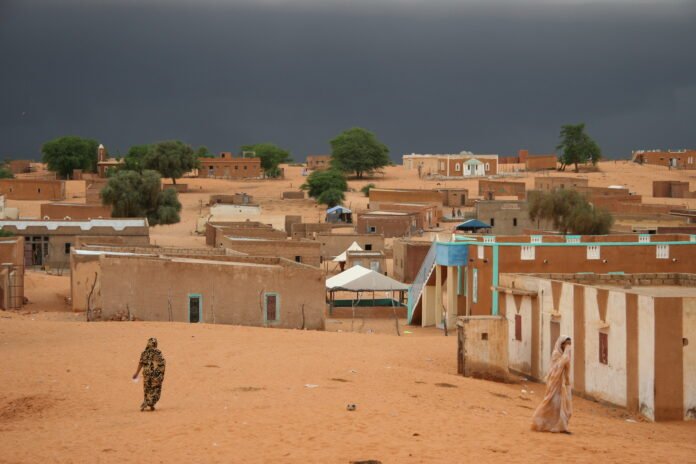Tunisia’s healthcare landscape features a dual system: public health insurance, managed by the government, and private health insurance, offered by both local and international providers. Each option presents distinct advantages and limitations, shaping how individuals access and experience healthcare.
Public Health Insurance: Structure and Access
The Caisse Nationale d’Assurance Maladie (CNAM) is Tunisia’s national public health insurer. CNAM coverage is mandatory for employed individuals and their dependents. Eligibility is based on work history—typically requiring 50 days of work in the past two quarters or 80 days in the last four quarters.
Public insurance primarily covers services in public hospitals and clinics, with limited access to private facilities under specific agreements. It offers basic coverage for hospitalization, maternity care, emergency services, and essential medications. Notably, it covers chronic or long-term conditions at 100%, whereas other services may require co-payments.
Despite its accessibility and affordability, CNAM faces operational challenges: long waiting times, outdated infrastructure, and staff shortages are common issues. While the cost is relatively low due to state subsidies and social contributions, quality and flexibility can be limited.
Private Health Insurance: Quality and Customization
On the other side, private health insurance is voluntary and popular among middle- and upper-income Tunisians, as well as expats. It provides faster access, modern facilities, and more personalized care. The top five domestic providers—STAR, GAT, COMAR, MAGHREBIA, and ASSURANCES BIAT—offer diverse plans catering to individuals, families, and corporations.
Private insurers provide comprehensive coverage, including inpatient and outpatient care, dental, vision, maternity, and sometimes evacuation services. Language barriers are less pronounced in private facilities, where English is more widely spoken.
Additionally, international providers like Cigna, AXA, April International, and GeoBlue appeal to expats seeking global coverage, remote support, and broad hospital networks. These plans are more expensive but offer greater flexibility and convenience.
Similarities and Overlaps
Both public and private insurance systems:
- Cover core health needs, including hospitalization and emergency care.
- Include dependents, though private plans often require additional premiums.
- Can work in tandem—some Tunisians use public insurance as a safety net and private insurance for premium services.
Top Public Health Insurances in Tunisia: Access, Coverage, and Consumer Insights
Tunisia operates under a predominantly public health insurance model, primarily managed by the Caisse Nationale d’Assurance Maladie (CNAM). As of now, CNAM is the sole national public health insurance provider in Tunisia. It serves as the principal pillar of the healthcare financing system, covering a wide segment of the population through social security contributions. While Tunisia does not have a diversified range of public health insurance providers like some larger countries, CNAM’s structure is stratified to accommodate different socioeconomic categories and employment sectors.
1. Caisse Nationale d’Assurance Maladie (CNAM)(Official website: https://www.cnam.nat.tn/)
Cost:
Contributions to CNAM are typically income-based. For employed individuals, the contribution is shared between the employer and the employee, usually around 7.75% to 9% of the gross salary, with variations depending on the sector. Self-employed individuals pay a fixed percentage based on declared income. Those with minimal or no income (such as some retirees or unemployed citizens) may receive state-subsidized coverage.
Available Services/Coverage Features:
CNAM offers a comprehensive set of healthcare services under three main reimbursement plans:
- Public Sector Plan (Regime de soins dans le secteur public): Provides care through public hospitals and health centers.
- Private Sector Plan (Regime de soins dans le secteur privé): Allows beneficiaries to consult private practitioners with partial reimbursement.
- Reimbursement System (Regime de remboursement): Offers reimbursement for out-of-pocket expenses incurred in both public and private settings.
Covered services include:
- General and specialist consultations
- Hospitalization (public facilities)
- Surgical procedures
- Emergency care
- Maternal and child health
- Preventive services (immunizations, screenings)
- Chronic disease management
- Medications listed on the national formulary
Dental care and optical services are also included but under stricter conditions and lower reimbursement rates.
Open for All or Limited:
CNAM is open to all legally employed residents, self-employed individuals, and those registered in the national social security system. Vulnerable populations, including some retirees and low-income individuals, can access it through state-supported assistance programs. However, undocumented migrants and informal sector workers not enrolled in social security may lack formal access.
Core Financial Features:
- Cost-sharing: Patients are responsible for copayments and deductibles, particularly for services accessed through private providers.
- Reimbursement ceilings: There are limits to how much CNAM will reimburse for specific procedures and medications, often depending on the service category and plan.
- Direct billing: Available in the public system, reducing the need for out-of-pocket payment at the point of care.
Consumer Satisfaction Score:
While CNAM plays a vital role in ensuring access to healthcare, consumer satisfaction is mixed. A recent survey conducted by the Tunisian Ministry of Health reported that about 65% of users were moderately satisfied, citing:
- Strengths: Affordability, wide public sector coverage, and chronic disease management
- Weaknesses: Bureaucratic delays, limited access to high-quality private services, and gaps in reimbursement timelines
Ongoing reforms aim to improve digitalization, increase efficiency, and expand coverage to informal workers and underserved populations.
Leading Private Health Insurances in Tunisia: Coverage, Costs, and Consumer Insights
Tunisia has a growing private health insurance sector that complements the public system, offering expanded access to private clinics, faster services, and broader treatment options. Although the market is relatively smaller compared to some countries, there are several reputable private health insurers catering to individuals, families, and corporate clients. Here are the top private health insurance companies operating in Tunisia:
1. COMAR Assurances – Plan Santé COMAR(Official website: https://www.comar.tn/)
Cost:
Premiums vary depending on age, coverage level, and medical history. For individual plans, average costs range from TND 400 to TND 1,200 per year.
Available Services/Coverage Features:
- Private hospital care and surgeries
- General and specialist consultations
- Maternity and childbirth services
- Pharmaceuticals (partial coverage)
- Dental and optical services (optional add-ons)
- Emergency and ambulance services
Open for All or Limited:
Open to all residents of Tunisia. Group rates are available for companies and families.
Core Financial Features:
- Offers flexible deductibles and co-insurance options
- Direct billing available with a wide network of private clinics
- Annual maximum coverage caps vary by plan (e.g., TND 10,000–50,000)
Consumer Satisfaction Score:
Rated 4.2 out of 5, praised for efficient claims handling, responsive customer service, and network reach. Some complaints relate to limitations in dental and optical reimbursements.
2. STAR Assurances – STAR Santé(Official website: https://www.star.com.tn/)
Cost:
Annual premiums range from TND 500 to TND 1,500, depending on coverage depth and age.
Available Services/Coverage Features:
- Hospitalization and major medical procedures
- Doctor visits and specialist care
- Diagnostic tests and medical imaging
- Maternity coverage (with a waiting period)
- Option to include alternative medicine and wellness services
Open for All or Limited:
Available for individuals, families, and companies. No strict medical exam required for basic packages.
Core Financial Features:
- Tiered plans with increasing limits and reimbursement rates
- Direct payment at affiliated clinics and labs
- Optional travel and evacuation coverage
Consumer Satisfaction Score:
Receives a 4.0 out of 5 rating for transparency and policy customization. A few customers mention occasional reimbursement delays.
3. GAT Assurances – GAT Santé(Official website: https://www.gat.com.tn/)
Cost:
Premiums typically range from TND 450 to TND 1,300 annually.
Available Services/Coverage Features:
- Full private hospital and clinic access
- Emergency care and surgeries
- Laboratory and radiology services
- Childbirth and prenatal/postnatal care
- Mental health support (optional add-on)
Open for All or Limited:
Open to residents and expatriates. Group and corporate packages are widely used.
Core Financial Features:
- Annual coverage limit up to TND 60,000 depending on plan
- Covers up to 90% of eligible costs in premium plans
- Loyalty discounts after multiple renewal years
Consumer Satisfaction Score:
Rated 4.1 out of 5. Clients appreciate fast approvals and hospital partnerships. Some report complexity in understanding plan tiers.
4. AMI Assurances – Assurance Maladie Individuelle(Official website: https://www.ami.com.tn/)
Cost:
Pricing starts around TND 300 per year, rising to TND 1,000+ for advanced coverage.
Available Services/Coverage Features:
- Inpatient and outpatient services
- Medical imaging, labs, and specialist care
- Maternity and child health (in higher-tier plans)
- Support for chronic disease medications
Open for All or Limited:
Open to individuals, including students and retirees.
Core Financial Features:
- Optional co-pay and deductible adjustments to lower premiums
- Network of preferred healthcare providers
- Online claims submission portal available
Consumer Satisfaction Score:
Around 3.9 out of 5. Customers note the affordability and digital convenience but point out narrower service coverage compared to others.
5. Assurances Maghrebia – Maghrebia Santé(Official website: https://www.assurancesmaghrebia.com.tn/)
Cost:
Premiums from TND 350 to TND 1,250 per year, depending on age and plan type.
Available Services/Coverage Features:
- Comprehensive hospitalization and surgeries
- Specialist consultations and second opinions
- Dental, optical, and rehabilitation therapies (as add-ons)
- International medical assistance (optional)
Open for All or Limited:
Available to individuals, expatriates, and companies.
Core Financial Features:
- Annual limits from TND 20,000 to TND 70,000
- Wide co-insurance and cost-sharing flexibility
- Access to a large network of contracted providers
Consumer Satisfaction Score:
Scores 4.3 out of 5, praised for high-end coverage and international options. Some clients cite premium increases after claims.
READ MORE: Private and public health insurance of Sudan (Make informed choices)


